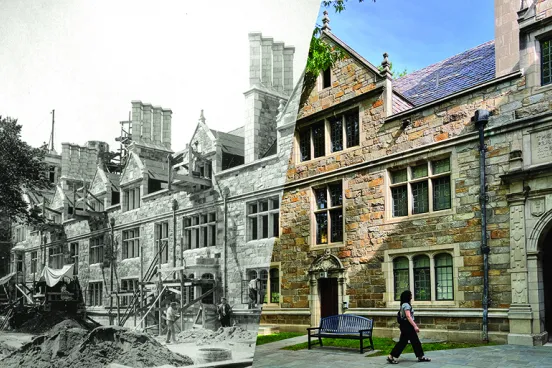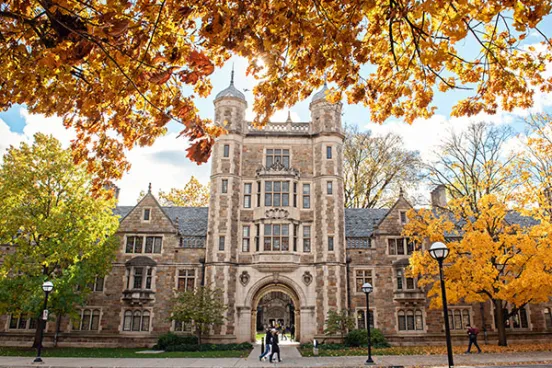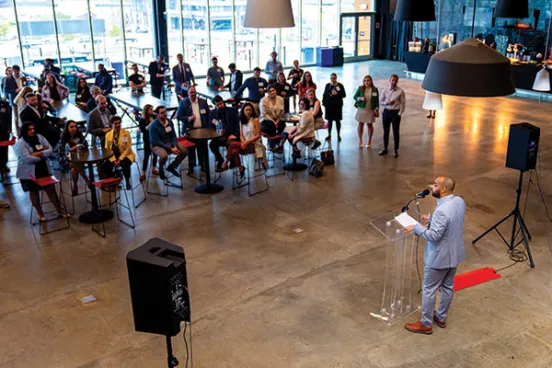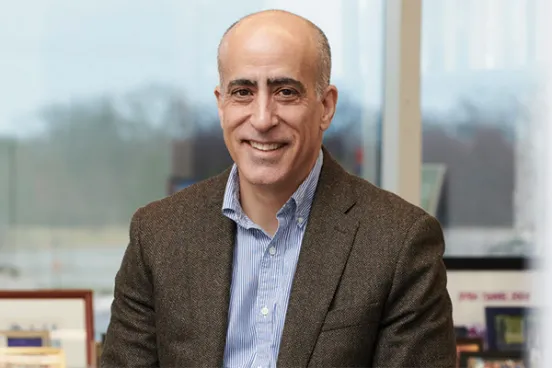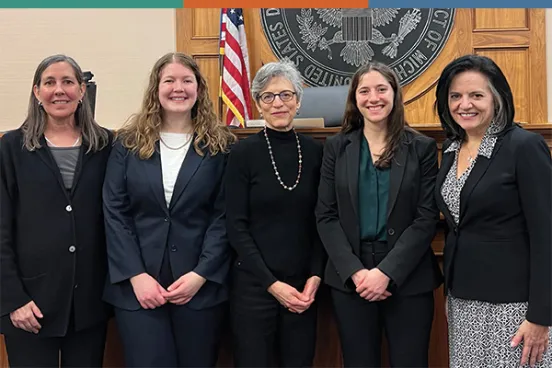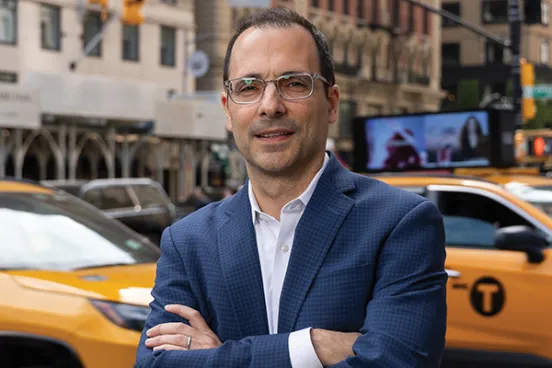During spring break in February, three Michigan Law students traveled far from the familiar confines of the Quadrangle to the verdant, rolling hills of Kigali, Rwanda. The journey provided them with the opportunity to meet in person with management of BioMassters Limited, a client with whom they had been working all year in the International Transactions Clinic (ITC).
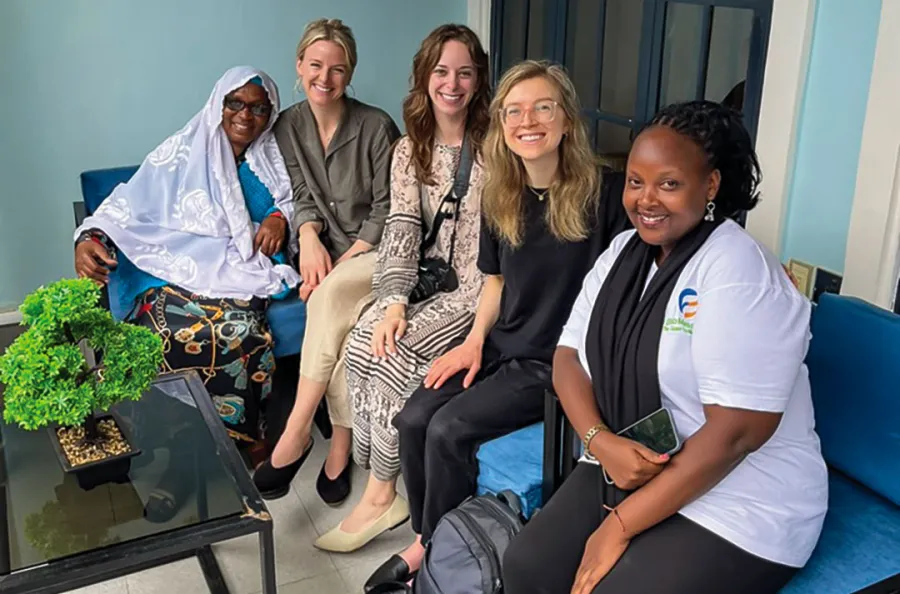
Since 2008, the ITC has worked with a long list of for-profit and nonprofit organizations that span the globe from North America to Africa, Asia, and Latin America. But this foreign trip—funded with a donation from Stuart Chemtob, ’78, senior of counsel at Wilson Sonsini Goodrich & Rosati—was the first of its kind for either faculty or students of the clinic.
“The clinic does a lot of legal work—and students learn a lot—here at the Law School, but it remains somewhat abstract in terms of what our clients are actually doing in their countries,” says David B. Guenther, ’99. Guenther, a clinical professor of law, is the director of the ITC and co-supervised the student team with Marcia Nordgren, an adjunct clinical assistant professor.
“By going to visit the client, they got a lot of substantive experience working as international lawyers outside the US and they got to see the impact the client is having on the ground,” Guenther adds. “It’s important to have relationships with your clients, and being there in person with the company management goes a long way toward cementing those relationships.”
David B. Guenther, ’99, a clinical professor of law and director of the International Transactions ClinicThe clinic does a lot of legal work—and students learn a lot—here at the Law School, but it remains somewhat abstract in terms of what our clients are actually doing in their countries.
Helping develop legal infrastructure
BioMassters is a private company that produces inexpensive clean-cooking stoves as well as pellet fuel from recycled products for use in the stoves. The products address the health, pollution, and deforestation problems that arise from use of charcoal-burning stoves.
“It also addresses safety issues,” says Nordgren, “because it’s typically women who are walking long distances to go to the forest to get the wood. It’s made their lives easier, safer, and more healthy.”
BioMassters is one of an increasing number of startups organized in sub-Saharan Africa, which is home to several of the fastest-growing economies in the world. Growth of Rwanda’s start-up sector means there’s an urgent need for the development of legal infrastructure and services.
“Rwanda is seen as a place where companies can test the waters in the early stages of their business,” says Jessica Carter, ’24. “It is trying to cater to that demand. And that’s why they’ve begun to incorporate some common-law elements into their civil law system.” Carter made the trip with Lindsey Corbett, ’24, and Emily Unger, ’24. A fourth student, Sara Shoemaker, ’24, played a vital role on the team but was unable to travel during spring break.
Many of the ITC’s social enterprise clients are looking to raise funds outside the countries where they are organized, such as the United States, the United Kingdom, and the European Union. One aspect of the clinic’s work is to help clients with corporate governance documents and ensure they have proper legal documentation—an important part of any pitch to potential investors.
“They do need a lot of international advice,” Guenther says. “We can only advise on US law, and really only in the US states where we’re admitted to practice. But we act as a kind of international counsel in a lot of financing deals.”
 The BioMassters and ITC teams visited a client site while in Rwanda. During their downtime, the ITC students viewed wildlife in Akagera National Park.
The BioMassters and ITC teams visited a client site while in Rwanda. During their downtime, the ITC students viewed wildlife in Akagera National Park.
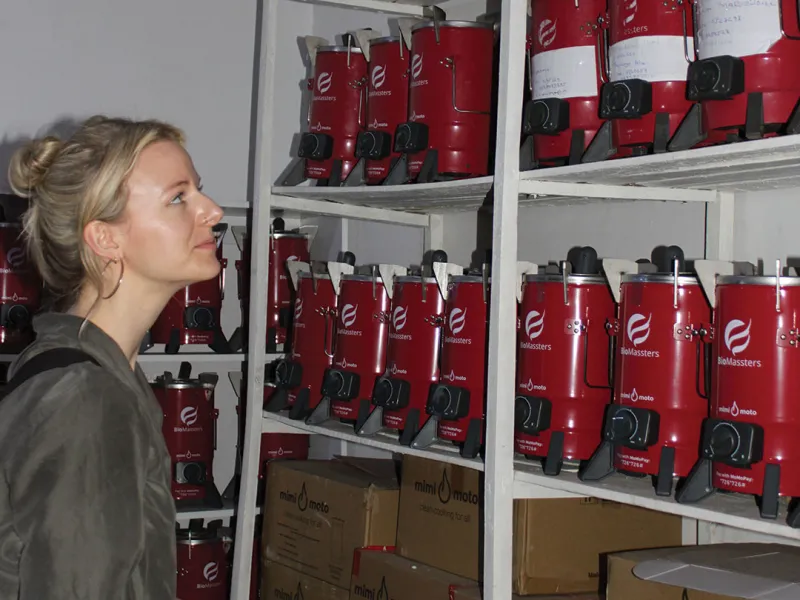 Clinic student Lindsey Corbett checks out BioMassters stoves in a storehouse in Kigali.
Clinic student Lindsey Corbett checks out BioMassters stoves in a storehouse in Kigali.
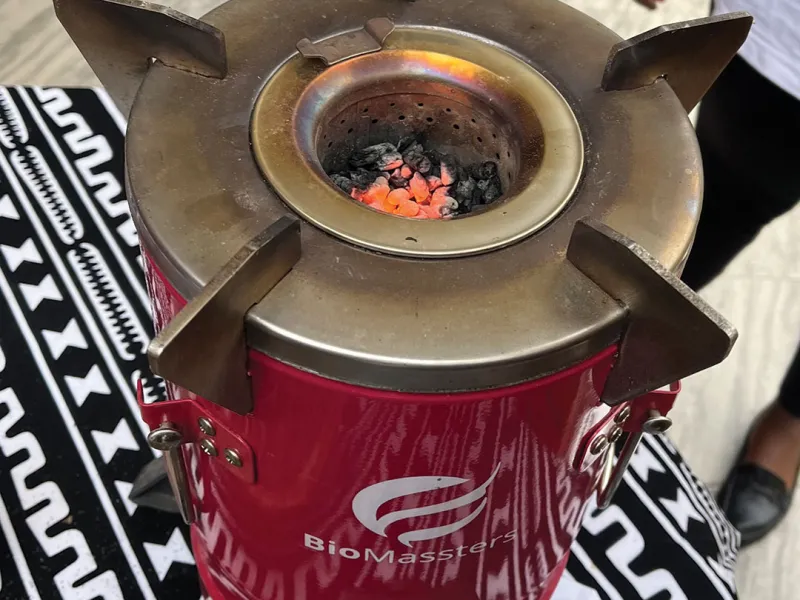 The company produces inexpensive clean-cooking stoves.
The company produces inexpensive clean-cooking stoves.
 The company also produces pellet fuel from recycled products for use in the stoves.
The company also produces pellet fuel from recycled products for use in the stoves.
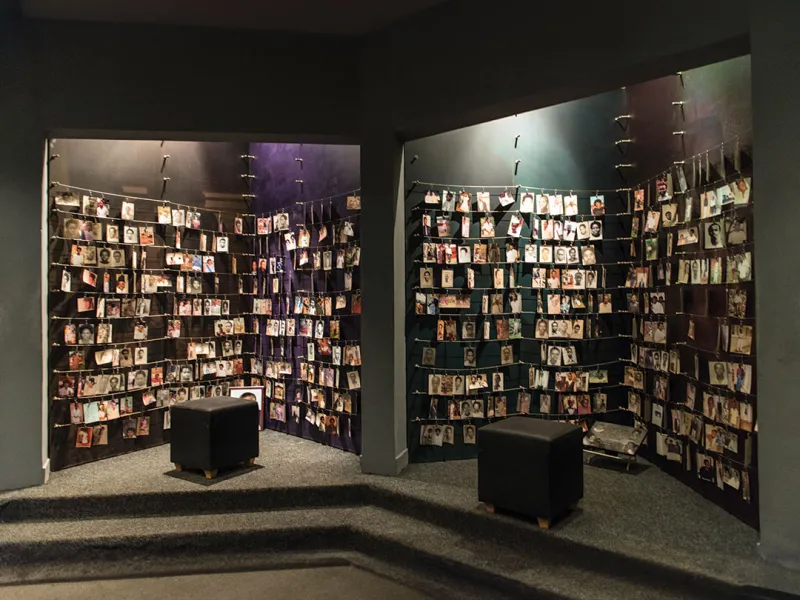 The clinic students visited the Kigali Genocide Memorial on their first day in Rwanda.
The clinic students visited the Kigali Genocide Memorial on their first day in Rwanda.
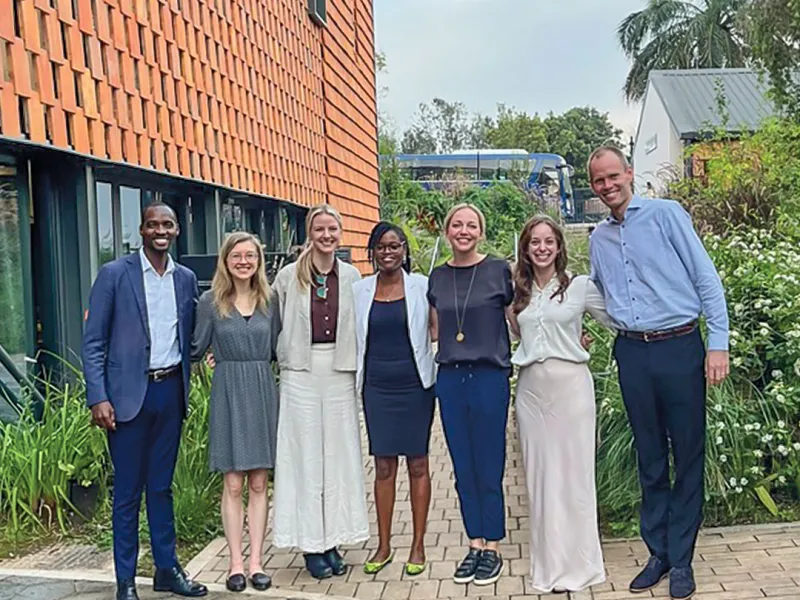 Clinic students met with members of the BioMassters team and their Rwandan counsel. From left to right are Itete Mugagga Emmanuel, partner at Fountain Advocates; students Jessica Carter and Lindsey Corbett; Nana M. Distelle, associate at Fountain Advocates; Claudia Muench, CEO of BioMassters Ltd.; student Emily Unger; and Jan de Graaf, COO of BioMassters Ltd.
Clinic students met with members of the BioMassters team and their Rwandan counsel. From left to right are Itete Mugagga Emmanuel, partner at Fountain Advocates; students Jessica Carter and Lindsey Corbett; Nana M. Distelle, associate at Fountain Advocates; Claudia Muench, CEO of BioMassters Ltd.; student Emily Unger; and Jan de Graaf, COO of BioMassters Ltd.
Seeing the impact
The students started their first day of work in Rwanda with an in-depth overview from members of BioMassters’s management team about their business model and motivations for starting the company. That afternoon, they toured the company’s operations. They also visited one of its stores in Kigali, where they had a chance to meet customers and ask why they had made the switch from a traditional stove to a biomass stove and why they continued to use it.
“It was really helpful to visit the customers and see the product on the ground because we were able to tether our understanding of the client’s business model to something that was more concrete,” says Corbett. “We were previously more involved in the company’s work only in the abstract, for example, working on their policies and corporate governance documents.”
Carter, Corbett, and Unger also spent time with the company’s Rwandan counsel—a law firm in Kigali—to discuss several issues under Rwandan law.
“The clinic can’t advise the client on Rwandan law matters,” says Nordgren. “So being able to discuss the legal issues directly with the local counsel is very important.”
Corbett adds that meeting with local counsel was as helpful in their work as their meetings with the company’s management.
“Our team spent all of last semester preparing memos for the client and answering some of their questions about business plans that they have for the next several months,” she says. “And being able to supplement that with local counsel expertise—filling in the gaps for things that we are not able to answer for them—was really helpful.”
Rwanda, 30 years later
While much of their trip was devoted to work, the students were able to carve out some time to learn more about the country and were particularly struck by the kindness of the people and the beauty of the surroundings.
“BioMassters is a small company, and they’re all so passionate about the work they’re doing,” says Unger. “They chose to form the company in Rwanda, so having the opportunity to show us the place that means so much to them was exciting for everyone.”
Additionally, on their first day in the country, the students visited the Kigali Genocide Memorial, which commemorates the 1994 genocide of between 500,000 and 1 million members of the Tutsi minority ethnic group.
“I’m very glad that was our first activity when we got there because it framed the rest of the trip very well,” says Unger. “And we all felt there were many moments where it just was hard to wrap your mind around the fact that 30 years ago there was a genocide, given how far the country has come.”
The students are thrilled to be participating in Rwanda’s transition and grateful for their week in the country.
“To have the experience of thinking really deeply about some of these legal issues and then be on the ground and have a chance to discuss them and really use that as a learning opportunity was so fantastic,” says Corbett. “I think we all felt that the meetings were not only successful for the client, but I think one of the more rewarding legal educational experiences that we’ve had.”


